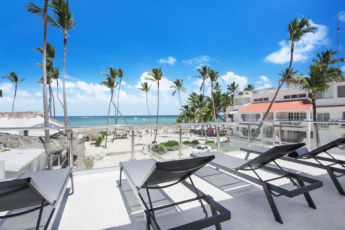Allergy-Friendly Rentals: Locating Accommodations That Suit Your Dietary Needs
Understanding Dietary Restrictions and Allergies

Allergy-Friendly Rentals: Locating Accommodations That Suit Your Dietary Needs
The delicate dance of dining with dietary restrictions or allergies is a reality for many, influencing both daily life and travel experiences. Understanding the basics of dietary restrictions and allergies is essential for ensuring a safe and enjoyable stay in any accommodation.
1. Common Food Allergies Explained
Food allergies are an increasingly common concern, affecting approximately 32 million people in the United States alone. Nut allergies, dairy allergies, and shellfish allergies are among the most prevalent. Understanding these allergies and their potential impacts can help travelers make informed decisions.
- Nut Allergies: This includes peanuts and tree nuts such as almonds, walnuts, and cashews. Reactions can range from mild hives to severe anaphylaxis. Many accommodations now offer nut-free cooking environments or menus to cater to these needs.
- Dairy Allergies: Different from lactose intolerance, dairy allergies can cause reactions even from a small amount of dairy protein. Dairy-free options in accommodations are becoming more common, with plant-based alternatives widely available.
- Shellfish Allergies: Affecting both crustaceans and mollusks, shellfish allergies can be particularly severe. Travelers should seek accommodations with a clear understanding of cross-contamination prevention.
2. Difference Between Allergies and Intolerances
The distinction between allergies and food intolerances is crucial yet often misunderstood. While both can affect dietary choices, they are fundamentally different.
Allergies involve the immune system and can cause severe, life-threatening reactions. In contrast, food intolerances typically involve the digestive system, leading to discomfort but not life-threatening symptoms. For example, lactose intolerance results from the inability to digest lactose, causing bloating or diarrhea, whereas a dairy allergy could result in hives or anaphylaxis.
Understanding these differences is vital for accommodations to provide appropriate and safe options for their guests. Clear labeling and communication can prevent misunderstandings and ensure a pleasant stay.
3. The Importance of Safe Dining Environments
For individuals with dietary restrictions, the dining environment is as important as the food itself. Safe dining environments minimize the risk of cross-contamination and provide peace of mind for guests.
Accommodations that prioritize allergy-friendly practices often include dedicated cooking areas, separate utensils for allergen-free cooking, and staff trained in handling dietary restrictions. Moreover, the presence of clear allergen labeling on menus can significantly reduce anxiety for those with severe allergies.
Choosing accommodations that offer these safe dining environments can transform a potentially stressful travel experience into a truly relaxing and enjoyable one.
Researching Allergy-Friendly Accommodations
In a world where dietary restrictions are increasingly common, finding the right accommodation that respects and caters to specific allergy needs is more crucial than ever. From understanding certifications to leveraging technology, there are various strategies to ensure your stay is safe and enjoyable.

Aerial view of Punta Cana
1. Identifying Allergy-Friendly Certifications
In the realm of allergy-friendly accommodations, certifications provide a reliable benchmark. Recognizing these labels can guide you in selecting places that prioritize safety for guests with dietary restrictions. Certifications like the Gluten-Free Certification Organization (GFCO) and the Allergy-Friendly Hotel Program can be indicative of a property’s commitment to allergy safety. These certifications often require accommodations to adhere to stringent guidelines that minimize cross-contamination and guarantee safe food practices.
Common Allergy-Friendly Certifications
| Certification | Description | Requirements |
|---|---|---|
| Gluten-Free Certification Organization (GFCO) | Focuses on ensuring food products and environments are free from gluten contamination. | Strict audits and adherence to gluten-free protocols. |
| Allergy-Friendly Hotel Program | Ensures hotels provide allergy-friendly rooms and dining options. | Use of hypoallergenic bedding and allergy-safe kitchen practices. |
| Safe Eats Certification | Recognizes restaurants and accommodations that prevent cross-contact with allergens. | Staff training and allergen-free zones. |
By understanding these certifications, travelers can make informed decisions, ensuring a safer and more comfortable stay.
2. Utilizing Online Platforms for Allergy-Specific Searches
The digital age has brought immense convenience to travelers, and this extends to those with dietary needs. Several online platforms have integrated features that allow users to filter accommodations based on specific dietary preferences. Websites like Airbnb and Booking.com offer search filters for allergy-friendly properties, enabling travelers to easily locate suitable options. Additionally, apps like Spokin and AllergyEats provide user-generated content that highlights allergy-friendly places to stay and dine.
These platforms are invaluable tools, offering not only accommodation options but also insights into nearby dining establishments that cater to specific dietary restrictions. By leveraging these resources, travelers can plan their trips with confidence and peace of mind.
3. Reading Reviews and Testimonials for Assurance
When it comes to ensuring that an accommodation truly meets allergy-friendly standards, guest reviews and testimonials are an invaluable resource. Reviews often provide firsthand insights into a property’s commitment to maintaining a safe environment for individuals with dietary restrictions. Look for comments that mention specific measures taken by the accommodation, such as the absence of certain allergens or the availability of gluten-free meal options.
Moreover, testimonials can offer reassurance about the attentiveness and understanding of the staff when it comes to handling dietary concerns. When reading reviews, pay attention to both positive and negative feedback to get a balanced perspective. This approach helps in identifying any patterns or red flags that might impact your decision.
Our Best Allergy-Friendly Rentals in Punta Cana
Discover accommodations that prioritize your dietary needs with our selection of allergy-friendly rentals. Each property is vetted to ensure a safe and enjoyable stay, allowing you to focus on relaxation and adventure in beautiful Punta Cana.

Exclusive Ocean View 5-Star Cap Cana Villa for Rent - Chef, Butler, Maid & Golf Cart
from $4600 night Read more
Luxury Villa Right on Los Corales Beach - With Heated Pool, Maid & Chef in Bávaro
from $2995 night Read moreCommunicating Your Needs to Hosts
Effectively communicating your dietary needs to hosts is a vital step in ensuring a safe and enjoyable stay. This crucial interaction can prevent misunderstandings and ensure that your specific requirements are met, making your travel experience stress-free and pleasurable.
1. Preparing a Dietary Needs Checklist
Creating a comprehensive dietary needs checklist is an essential first step in communicating your allergies and restrictions to hosts. This checklist should include all food allergies, intolerances, and preferences, along with any cross-contamination concerns. Be specific about ingredients you need to avoid, such as gluten, nuts, or dairy, and include any special dietary practices, like veganism or keto diets.
When crafting your checklist, consider using clear, concise language and organizing the information in a manner that is easy for hosts to understand. For instance, listing allergens in bold or using bullet points can help emphasize critical points. Additionally, translating your checklist into the local language of the destination can be beneficial, especially in non-English speaking countries, ensuring clarity and avoiding any language barriers.
2. Questions to Ask Before Booking
Before finalizing any booking, it’s imperative to engage with hosts and ask targeted questions that will help you assess their capability to accommodate your dietary needs. Start by inquiring about their experience with previous guests who had similar dietary restrictions. This can give you insight into whether they have successfully managed such requests before.
Additionally, ask specific questions about the kitchen facilities, such as whether they offer separate utensils and cookware for allergy-friendly food preparation. Understanding their cleaning protocols for common areas, especially kitchens and dining spaces, can also provide assurance of a safe environment. If on-site dining is available, inquire about menu options and whether chefs can customize meals to avoid allergens.
Key Questions to Ask Hosts
| Question | Purpose | Ideal Response |
|---|---|---|
| Do you have experience accommodating food allergies? | Assess prior experience | Yes, with examples |
| Can you provide separate cookware for meal prep? | Evaluate kitchen safety | Yes, available upon request |
| What are your cleaning protocols? | Determine cleanliness standards | Regular, thorough cleaning |
3. The Importance of Clear Communication
Clear and polite communication is the cornerstone of a successful host-guest relationship, particularly when it comes to dietary restrictions. It sets the tone for mutual respect and understanding, ensuring that your needs are prioritized during your stay.
When communicating with hosts, it’s vital to be direct yet courteous. Start by expressing appreciation for their willingness to accommodate your needs. Clearly outline your dietary restrictions and explain why they are important for your health and well-being. Avoid using jargon or technical terms that could be misunderstood.
Utilize written communication, such as emails or messaging apps, to document your requests and the host’s responses. This not only provides a reference point in case of any issues but also allows both parties to revisit the details if needed. For complex requests, consider setting up a phone or video call to discuss your needs in more detail, which can also help build rapport with the host.
Lastly, express gratitude for their efforts and flexibility. Acknowledging their cooperation can foster a positive atmosphere and may encourage hosts to go the extra mile to ensure your comfort and safety.
Exploring Allergy-Safe Amenities and Services
When traveling with dietary restrictions, finding accommodations that go beyond basic allergy-friendly policies can significantly enhance your experience. Understanding which amenities and services can help maintain your dietary regimen is key to a stress-free vacation.

Punta Cana
1. Kitchens and Cooking Facilities
Having access to a private kitchen can be a game-changer for those with dietary restrictions. A full kitchen allows you to prepare meals with ingredients you trust, minimizing the risk of allergen exposure. Look for accommodations that provide well-equipped kitchens featuring modern appliances and ample cooking space.
- Inventory Check: Before booking, inquire about the kitchen inventory, including cookware, utensils, and appliances. A well-stocked kitchen can save you from bringing your own equipment.
- Food Storage Solutions: Ensure there is adequate storage for your groceries, including a refrigerator and pantry space. Separate storage can help avoid cross-contamination.
- Safety Protocols: Ask if the accommodation follows any safety protocols for cleaning kitchenware, which is crucial to prevent allergen exposure.
Our Best Allergy-Friendly Rentals with Kitchens in Punta Cana
Experience the convenience of cooking your meals in our well-appointed kitchen facilities. Enjoy peace of mind knowing you can maintain your diet without compromise.

Private Cap Cana Caleton Villa with Large Pool, Ocean View, and Top Amenities
from $2246 night Read more
New & Luxury Casa de Campo Oceanfront Villa - With Private Beach, Large Pool, Top Amenities
from $14820 night Read more2. On-Site Dining Options and Local Recommendations
Dining out can be daunting for someone with food allergies, but many accommodations offer on-site dining options that cater to specific dietary needs. Furthermore, knowing where to find local eateries with allergy-friendly menus can enhance your culinary experience.
- Allergy-Friendly Menus: Check if the accommodation’s restaurant offers menus with clear allergen labeling. Some establishments provide separate menus for different dietary needs, making it easier to dine safely.
- Chef Consultations: Inquire if it’s possible to speak with the chef to discuss menu modifications or special dietary requests.
- Local Recommendations: Hosts often have insider knowledge of local restaurants that accommodate dietary restrictions. Utilize their recommendations to find safe dining options.
3. Additional Services for Allergy Sufferers
Some accommodations go the extra mile by offering additional services that cater to guests with dietary restrictions. These services can provide an added layer of convenience and safety.
Additional Services Comparison
| Service | Benefits | Considerations |
|---|---|---|
| Grocery Delivery | Convenient access to allergen-free products | Verify the provider’s understanding of allergy-safe handling |
| Personal Chef | Customized meals prepared to your specifications | Ensure the chef is knowledgeable about cross-contamination prevention |
| Pre-Stocked Pantry | Immediate access to safe ingredients upon arrival | Confirm the list of items to ensure they meet your dietary needs |
By prioritizing these amenities and services, travelers with dietary restrictions can enjoy a more relaxed and enjoyable stay. Selecting accommodations that offer these features not only minimizes risk but also enhances the overall travel experience.
Legal Rights and Protections for Travelers with Allergies
Traveling with dietary restrictions requires an understanding of your legal rights and protections. This knowledge not only empowers you but also ensures a safe and enjoyable experience without compromising your health.
1. Overview of US Disability and Allergy Laws
In the United States, several laws protect individuals with allergies and dietary restrictions. The Americans with Disabilities Act (ADA) is a pivotal piece of legislation that mandates reasonable accommodations for individuals with disabilities, which can include severe allergies. This law ensures that public accommodations, including hotels, provide necessary modifications to prevent discrimination against individuals with allergies.
Additionally, the Food Allergen Labeling and Consumer Protection Act (FALCPA) plays a role in ensuring transparency in food labeling, which is crucial when dining out or purchasing packaged foods while traveling. It mandates that food manufacturers clearly label the presence of major food allergens, making it easier for travelers to make informed choices.
Comparison of Key US Allergy and Disability Legislation
| Legislation | Key Protections | Applicability |
|---|---|---|
| Americans with Disabilities Act (ADA) | Requires reasonable accommodations; includes severe allergies as a disability | Public accommodations, including hotels and restaurants |
| Food Allergen Labeling and Consumer Protection Act (FALCPA) | Mandates clear labeling of major allergens in packaged foods | Food manufacturers and distributors |
| Air Carrier Access Act (ACAA) | Prohibits discrimination against passengers with disabilities, including those with allergies | Airlines and air travel services |
2. What to Do If Your Needs Aren’t Met
Despite legal protections, there may be instances where your dietary needs are not adequately met. It’s crucial to know the steps you can take to address these issues. First, calmly communicate your concerns to the management of the accommodation or service provider. Explain your dietary needs and why the current situation poses a risk to your health.
If the issue remains unresolved, you can escalate the matter by contacting consumer protection agencies or filing a complaint with the relevant authorities, such as the Department of Justice for ADA-related breaches. Documenting your experiences, including any communications and responses, can be helpful if further action is needed.
Remember, you have a right to safe and accessible accommodations, and taking these steps will reinforce the importance of these rights to service providers.
3. Advocating for Yourself and Others
Advocacy is a powerful tool for effecting change and improving standards for allergy-friendly accommodations. By voicing your experiences and expectations, you can contribute to a broader awareness and understanding of dietary needs. Consider joining advocacy groups or online communities that focus on allergy awareness and travel. These platforms provide support and resources for travelers facing similar challenges.
Share your positive experiences and constructive feedback with service providers to encourage them to maintain or improve their standards. Your input could lead to better training for staff or enhancements in services offered to travelers with dietary restrictions.
By advocating for yourself and others, you not only enhance your travel experience but also help pave the way for more inclusive and accommodating options for future travelers.
Frequently Asked Questions
How can I find allergy-friendly rentals when traveling?
To find allergy-friendly rentals, you can start by searching for accommodations that specifically advertise allergy accommodations. Use filters on booking platforms like Airbnb or Vrbo to specify your dietary needs. Contact the host or property manager directly to ask about their ability to cater to your specific allergies.
What should I communicate to the host or property manager about my allergies?
When contacting a host or property manager, clearly outline your specific allergies and any necessary accommodations. Ask about the kitchen setup, cleaning protocols, and any local grocery stores that offer allergy-friendly products. This allows the host to prepare for your visit and ensure a safe environment.
Are there specific certifications or standards for allergy-friendly rentals?
While there are no universal certifications specifically for allergy-friendly rentals, some accommodations may be certified by organizations like Allergy Standards Limited, which evaluates products and environments for allergy-friendliness. You can inquire about any certifications or standards the accommodation adheres to.
What kitchen amenities should I look for in allergy-friendly rentals?
Look for rentals with a fully equipped kitchen that allows you to prepare meals safely. Key amenities include a clean refrigerator, stove, oven, and cookware. Ensure that the kitchen is thoroughly cleaned between guests and confirm that there are no cross-contamination risks from previous occupants.
How can I ensure the rental is thoroughly cleaned to avoid allergens?
Ask the property manager about their cleaning protocols. Ensure they use allergy-friendly cleaning products and have a routine to prevent cross-contamination. Some properties may offer hypoallergenic bedding and air purifiers as additional measures.
What if I have a reaction while staying at a rental?
If you experience an allergic reaction, follow your emergency plan immediately. Contact local medical services if necessary. Always travel with your medication and inform someone nearby about your allergies in case you need assistance.
For health-related issues, always consult a healthcare professional for advice specific to your needs.
Can I request a list of ingredients used in any provided meals at a rental?
Yes, it’s reasonable to request a list of ingredients for any meals provided at a rental. Communicate your dietary restrictions in advance and confirm that the host can accommodate your needs. This helps avoid any unexpected allergens.
Is there an additional cost for allergy-friendly accommodations?
Some rentals may charge a premium for allergy-friendly accommodations due to specialized cleaning or stocking of allergy-friendly products. It’s best to discuss any potential extra costs with the host before booking to avoid surprises.
How can I verify that a rental is genuinely allergy-friendly?
To verify the allergy-friendliness of a rental, read reviews from past guests with similar dietary needs. Contact the host to discuss your concerns and ask specific questions about their allergy accommodations. This helps ensure the rental meets your requirements and is genuinely allergy-friendly.
